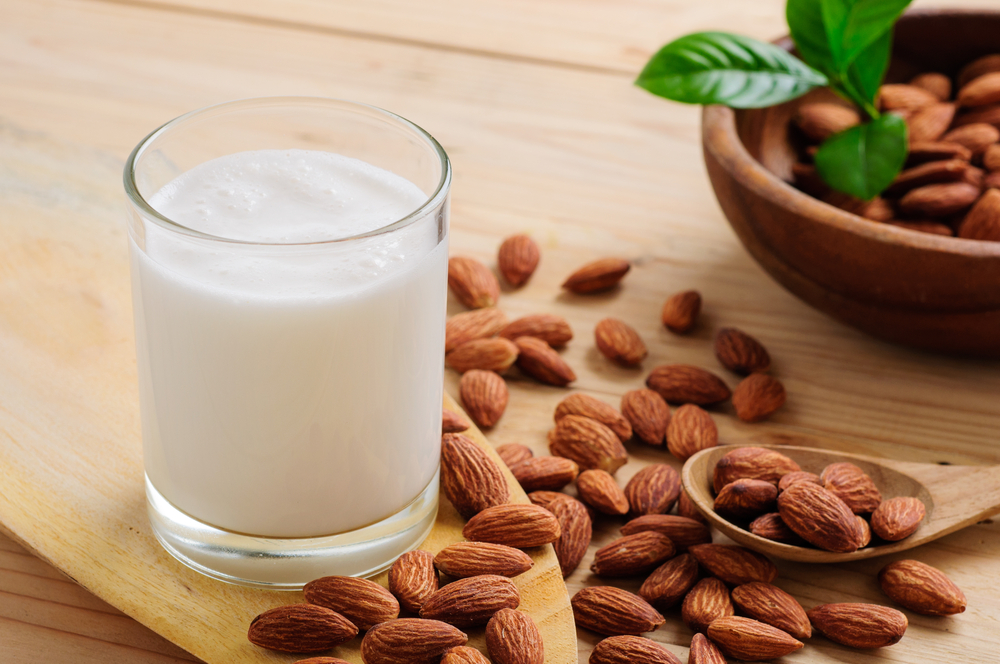Almond milk can be really helpful for people with fatty liver disease, and here’s why it’s a good choice:
Low Calorie and Low Fat
Rich in Healthy Fats
Not all fats are created equal, and almond milk is a good source of the healthier kind, specifically monounsaturated fats. These fats are known for their positive effects on health, including the ability to reduce inflammation and help prevent the accumulation of more fat in the liver. This is particularly important for those with fatty liver disease, as reducing liver fat and controlling inflammation can halt the progression of the disease and lead to improved liver function.
Nutrient Fortification
Many people with fatty liver disease may lack certain nutrients, and almond milk can be fortified to provide extra vitamins and minerals, notably vitamin D and calcium. Vitamin D plays a role in immune function and inflammation reduction, while calcium is essential for bone health and various cellular functions. Including fortified almond milk in your diet can help ensure you’re getting these important nutrients, supporting overall health and potentially aiding in the management of fatty liver disease.
In conclusion, almond milk can be a strategic addition to the diet of someone managing fatty liver disease. Its low calorie and fat content, coupled with the presence of monounsaturated fats and the possibility of nutrient fortification, make it not just a dietary substitute for dairy milk but a proactive choice in supporting liver health and overall wellness.
How Does Almond Milk Replace High-Calorie Drinks for Fatty Liver Health?
What Precautions and Considerations Should Be Taken When Including Almond Milk in Your Diet?
When using almond milk, especially if you have fatty liver disease, it’s important to keep a few things in mind to make sure it’s helping you and not causing any issues:
Choose Unsweetened Varieties
Many almond milk options in the market have added sugars, which can be bad for your liver and overall health. Always go for the unsweetened type to avoid these extra sugars.
Check for Allergies
If you’re allergic to nuts, almond milk is not safe for you. It’s made from almonds, which are nuts, so if you have nut allergies, you need to find a different milk alternative.
Nutrient Content
While almond milk is a good option for low calories and fats, it’s not very high in protein compared to cow’s milk or soy milk. So, make sure you’re getting enough protein from other foods in your diet.
Fortification
Some almond milk is fortified with extra vitamins and minerals like calcium and vitamin D, which are good for your health. Look for these fortified options to get more benefits from your almond milk.
Balance Your Diet
Almond milk should be just one part of a healthy diet. Make sure you’re also eating plenty of fruits, vegetables, whole grains, and lean proteins to give your body all the nutrients it needs.
Nutrition Facts for a Cup of Unsweetened Almond Milk
Side Effects of Almond Milk for Fatty Liver
Here’s a table summarizing the potential side effects of almond milk, especially for those with fatty liver disease:
| Side Effect | Description | Consideration |
|---|---|---|
| Allergic Reactions | Can occur in individuals with tree nut allergies, ranging from mild to severe symptoms. | Avoid almond milk if allergic to nuts. |
| Nutritional Deficiencies | Almond milk is lower in protein and some nutrients compared to cow’s milk. | Ensure a balanced diet to meet nutritional needs. |
| Added Sugars | Some almond milk varieties contain added sugars, which can be harmful for fatty liver. | Choose unsweetened varieties to avoid excess sugar. |
| Digestive Issues | Consuming large amounts may lead to bloating or constipation. | Moderate intake and monitor body’s response to almond milk. |
Conclusion
References
- “Non-Alcoholic Fatty Liver Disease: A Comprehensive Guide” by Kenneth Cusi, providing insights into the dietary management of NAFLD.
- “The Role of Diet in the Prevention and Management of Fatty Liver Disease” published in the Journal of Hepatology, discussing the impact of specific dietary components on liver health.
By considering the overall dietary pattern and lifestyle factors, individuals with fatty liver can leverage almond milk and other healthful foods to support liver health and prevent disease progression.

